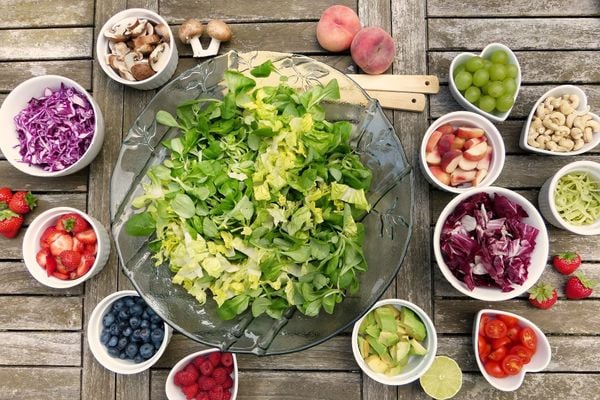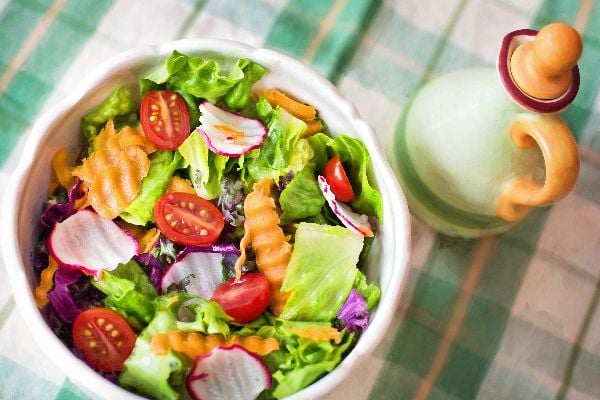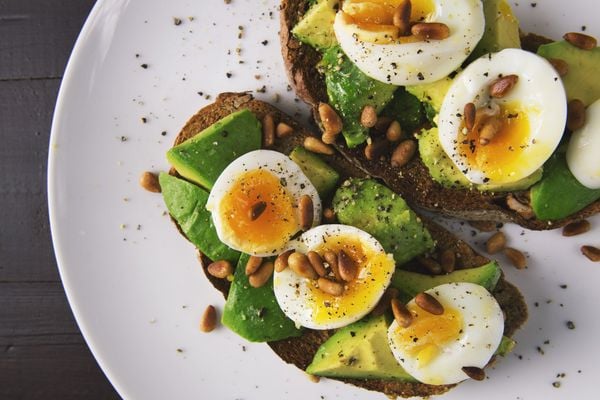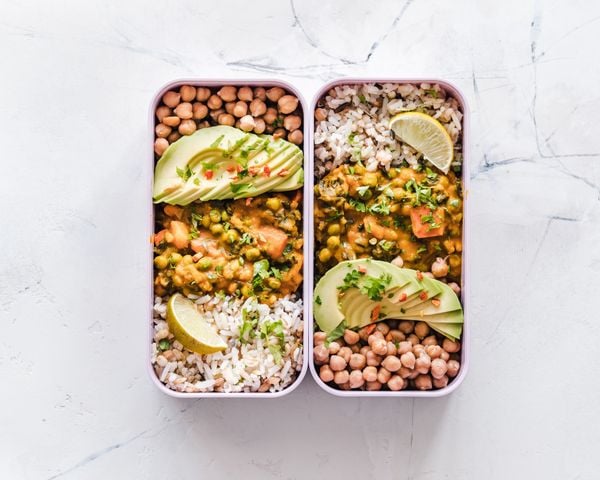Vegetarianism has been wildly adopted for the past few decades not only for religious believes, but also for the health and environmental benefits this type of diet promises. It has also become a trend in the culinary world, and been hotly demanded by food lovers, especially in Vietnam. However, many people don’t really understand the diet and thus, approach it from the wrong way.

- Varieties of vegetarianism:
In general, vegetarians are those who don’t consume meat and other products originating from animals, such as milk, cheese, yogurts, eggs and gelatin. However, there are other varieties of vegetarianism one can adopt to get the essentials from animal meat while maintaining the benefits of the vegetarian diet. [1]
- True vegetarianism (veganism): the strictest form of vegetarianism in which dieters don’t consume any meat as well as other animal products.
- Lacto-ovo vegetarianism: the form of vegetarianism in which milk and eggs are allowed. Some might take slightly different approaches to this variety by only consuming eggs (ovo vegetarianism) or milk (lacto vegetarianism).
- Partial vegetarianism: only certain types of animals are allowed, such as fish (pescatarianism) and poultry (pollo vegetarianism)
- Mistakes when adopting a vegetarian diet:
Following a vegetarian diet, regardless of varieties, has become a trend and incrementally embedded in one’s lifestyle. The more popular this diet has gotten, the more distorted and misinformed the information surrounding it has become. Let’s consider some of them in details:
- Overconsumption of refined carbohydrates, sugar, and artificial sweeteners
With the elimination of meat from daily meals, many fear that they would not get sufficient energy to be productive throughout the day. Consequently, some choose to consume more carbohydrates, especially the refined and highly processed forms like white rice, bread, instant noodles and take more sugary snacks in order to substitute the missing calories from meat. This poses a dangerous situation as overcoming processed carbs and refined sugar has been strongly linked to diabetes and other chronic conditions such as obesity, multiple sclerosis, heart problems and cancer [2]. Lastly, artificial sweeteners, as the name suggests, are not natural or have a natural origin. They all come from a lab instead of some tree and tend to have detrimental effects on consumers’ health. Thus, these chemicals should be avoided altogether [3].
- Abuse of imitation meat products
Especially in Vietnam, vegetarians often seek these types of pseudo meat in order to satisfy their carving. The problem with them is that they are often loaded with chemicals like artificial flavoring, artificial sweeteners, artificial thickeners and preservatives to imitate the taste and texture of meat. Moreover, these types of food are made with ingredients which are highly processed and with unclear origins. Consuming them will inevitably lead to all sorts of health-related problems. Thus, you should reduce fake meat consumption or try to eliminate it entirely from your diets in order to protect and improve the health of yourself as well as your family [4].
- Lack of vegetables and healthy fats
Conventional vegetarians only focus on getting rid of meat in their diets and consuming more carbs to get sufficient energy. Hence, they often miss the bigger pictures with other key components, namely healthy fats and vegetables. In fact, these two factors are responsible for almost all health benefits of adopting a vegetarian diet. Healthy fats, other than being essential nutrients, are more satiating than carbs and have flavors of their own which make eating more often and using more additives become obsolete. Eating more vegetables is crucible to vegetarians because they will not only supply diets with abundant nutrients, but also improve the digestive function and enhance the ability to absorb nutrients. Centering vegetarian diet around healthy fats and vegetables will instantly open up countless possibilities to make this diet more enjoyable [5].
- The smart way to vegetarianism
- For lacto-ovo vegetarians: adding eggs, milk and other milk products like cheese and yogurts to the diet are a great way of supplying the body essential nutrients that can only be found in animals such as vitamin D, carnosine, creatine, DHA, some amino acids, and vitamin B12.

- For vegans: the key (not only to veganism but also any kind of dieting) is to focus on healthy fats, nuts, seeds, vegetables, berries and diversity.
- Great sources of fats are avocados, olive oil, coconut oil, and other “fatty” nuts like macadamia, Brazil nuts, walnuts, etc. These should be the main sources of energy for a vegan diet as they are more satiating and will supply the body with enough energy and other essential nutrients to properly function throughout the day.
- Nuts, seeds and legumes, especially lentils, chickpeas and beans are great sources of protein which are crucial considering the complete elimination of meat.
- Vegetables, especially the cruciferous family like broccoli, cauliflower, brussels sprouts, and kale, are loaded with antioxidants, fibers, and minerals that are vital to the success of this diet.
- Adding fermented products, like tempeh, miso, kombucha, kimchi, and coconut milk yogurts, are a great way to further support the digestive system and maximize the efficiency of nutrient absorption.
- For any vegetarian: it’s generally a good idea to void using meat substitutes and overconsuming processed carbs.

- For vegans: the key (not only to veganism but also any kind of dieting) is to focus on healthy fats, nuts, seeds, vegetables, berries and diversity.
- Great sources of fats are avocados, olive oil, coconut oil, and other “fatty” nuts like macadamia, Brazil nuts, walnuts, etc. These should be the main sources of energy for a vegan diet as they are more satiating and will supply the body with enough energy and other essential nutrients to properly function throughout the day.
- Nuts, seeds and legumes, especially lentils, chickpeas and beans are great sources of protein which are crucial considering the complete elimination of meat.
- Vegetables, especially the cruciferous family like broccoli, cauliflower, brussels sprouts, and kale, are loaded with antioxidants, fibers, and minerals that are vital to the success of this diet.
- Adding fermented products, like tempeh, miso, kombucha, kimchi, and coconut milk yogurts, are a great way to further support the digestive system and maximize the efficiency of nutrient absorption.

- For vegans: the key (not only to veganism but also any kind of dieting) is to focus on healthy fats, nuts, seeds, vegetables, berries and diversity.
Vegetarianism doesn’t have to be boring or torturing as many might think. If understanding correctly and using the right approaches, this diet can be very enjoyable and beneficial to anyone interested in trying.
Nam An Market hopes you will reconsider this diet or give it a try.
Source:
[1]:https://www.health.harvard.edu/staying-healthy/becoming-a-vegetarian
[2]:https://www.healthline.com/nutrition/good-carbs-bad-carbs#section2
[3]:https://www.healthline.com/nutrition/msg-good-or-bad#bottom-line
[4]:https://www.doisongphapluat.com/tin-tuc/rung-minh-huong-lieu-phu-phep-thuc-pham-chay-thanh-do-man-co-vi-thit-ca-a261309.html
[5]:https://www.healthline.com/nutrition/vegetarian-and-vegan-mistakes#section11

















